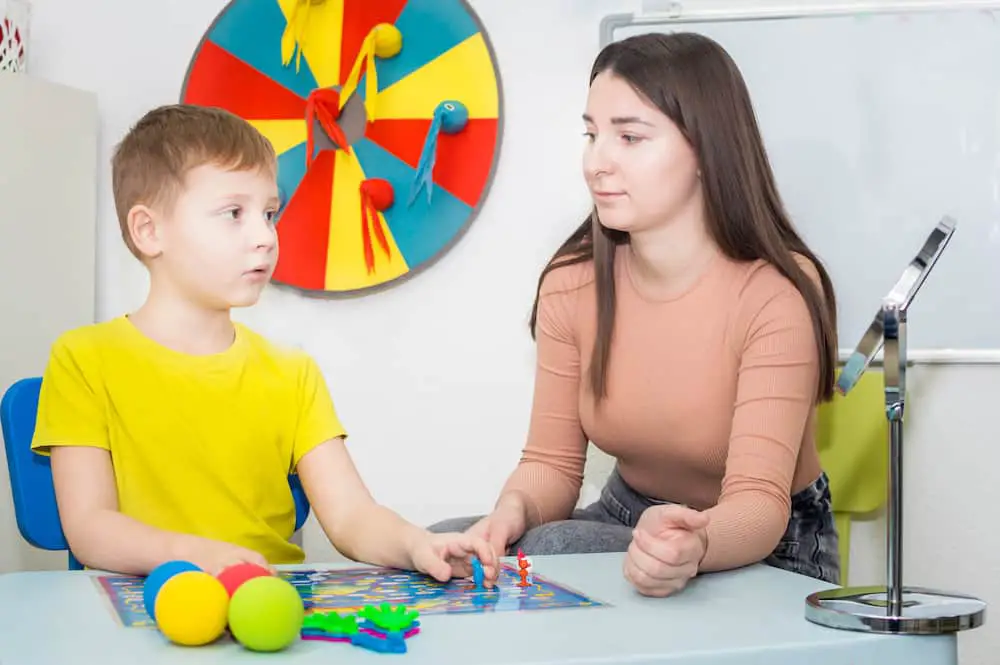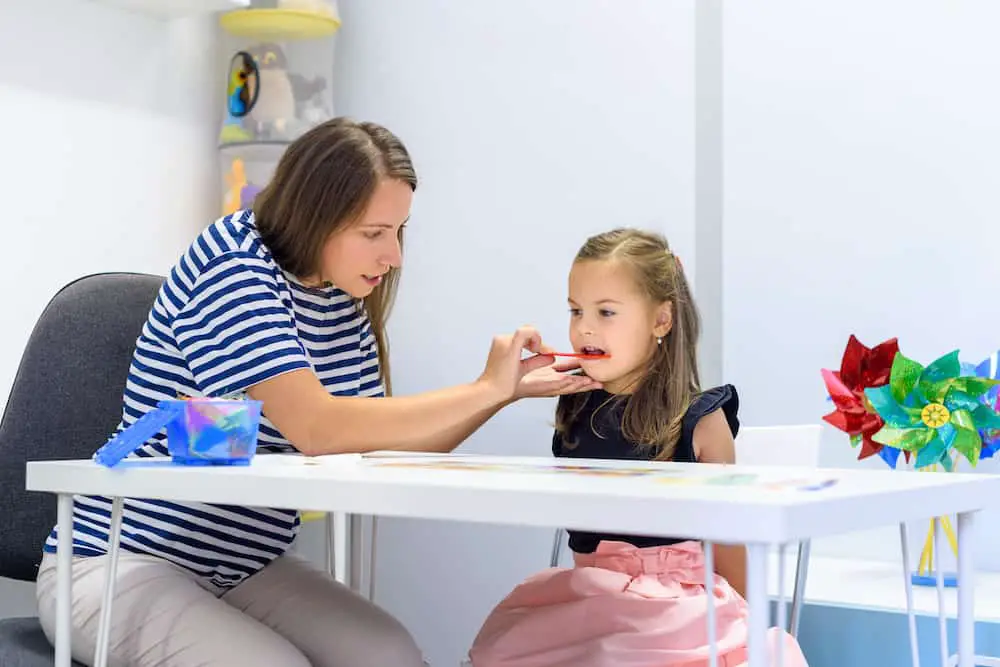Every child has his unique developmental phase, but they need to conform to the set guidelines according to their age range.
Unfortunately, some children reach a specific pace without meeting the skill expected for their age.
That is when you need to consult a professional.
One developmental aspect that a child needs to go through is speech development.
It is a crucial factor in every child’s future success, so what if this aspect is not met?
How early can you start speech therapy after your doctor confirmed that there is a problem?
Does Your Child Need Speech Evaluation?
Baby talk sounds adorable, but what if your child still speaks the same way after several years?
It is always beneficial to seek professional input early on, exceptionally before your child starts preschool.
Early detection of any type of speech disorder will have a lesser impact on your child’s overall well-being.
As a parent, your instinct will tell you if there is something wrong with your child, so monitor your kid’s verbal development.
By age three, most kids should be able to speak specific consonants, if not all of them.
Kids who are too quiet or do not talk much may be suffering from speech delay problems.
If you feel that your child’s verbal development is not within the target for his age, go to your pediatrician first.
Your doctor will initially check for hearing loss; after all, a child who cannot hear anything will have difficulty making sounds.
The pediatrician will then refer you to a speech pathologist if he suspects your child needs a specialized technique to improve.
How Is Speech Delay Diagnosed?
You may have noticed something is not right with your child and decided to bring her to a professional.
Your child’s doctor will conduct the initial assessment before referring you to a specialist.
In this case, he will probably refer you to a speech-language pathologist or speech therapist.
It usually starts with a routine check-up, beginning with a physical examination followed by questions about developmental milestones.
The speech therapist may suggest a series of tests to check your child’s speech skills and other conditions related to speech delay.
Moreover, they will also ask your child to say specific sentences, sounds, and words so that they can assess how he talks.
Generally, the specialist will compare your child’s performance with a developmental milestones chart and determine what type of strategy to use.
How Is Speech Delay Treated?
Children diagnosed with speech delay may require speech therapy.
A speech therapist would prepare specific techniques appropriate to your child’s condition.
In this regard, parents are encouraged to also help in improving their children’s skills even while at home.
They can talk to their children throughout the day, pointing out things around them while asking them questions about them.
Reading, in general, is another excellent way to help your kids with their speech delay concerns.
There’s a ton of reading materials that you can read with your child.

How Early Can You Start Speech Therapy?
Parents will notice tell-tale signs if their children have developmental delays as early as three months old.
Usually, babies should start babbling between four to seven months, experimenting with different sounds and responding to people.
However, bringing their children to a speech therapist right away may seem useless at such an early age.
They can start by bringing their children to their doctor and checking properly while being more observant of their kids’ behavior.
12 Months
Most 12-month-old children know how to react when spoken to. Some will make sounds in acknowledgment, while others use gestures.
Also, children aged between 12 and 24 months can understand simple instructions and respond accordingly.
When your child does these things, they have developed basic communication skills and understand how to use them.
However, if your child does not respond whenever you talk to him, it might be best to bring him to a specialist.
18 Months
Children between 18 and 24 months should start combining words to form simple phrases to express their feelings and what they want.
If you can see that your child is struggling to form even a two-word phrase, then it is time to have him assessed by a professional.
24 Months
By age two, most children can create two- to three-word phrases to express what they want.
Most of them can speak at least 50 words but can comprehend more than 300 words at this point.
However, if your child only uses gestures and does not verbalize to communicate their ideas, talking to a specialist might be necessary.
Most two-year-olds can talk non-stop.
If your child does not speak unless you tell them to, it might be another cause for concern.
Lastly, observe your child’s voice every time he speaks, if it sounds nasally or raspy.
Sometimes, it is an indication that something is not right.
Three Years Old and Beyond
Most children have a wide range of vocabulary when they reach this stage and can express whatever they want.
Parents, even other people, can understand at least 75 percent of what their children are saying without any difficulty.
However, if you have a hard time understanding your child’s speech, you need to consult a specialist.
A Combination of Factors
Most experts and professionals stress that speech delay is not an unusual condition for young children.
On the other hand, if your child has speech delay problems combined with unusual behaviors, he might need professional help and therapy.
Here are some unusual behaviors to look out for:
- Lack of nonverbal communication like babbling, eye contact, smiles, and other social engagement behaviors
- Inability to follow instructions
- Poor or short-term memory
- Extreme annoyance and irritation when trying to communicate
Conclusion
How early can you start speech therapy for your child?
Parents worry a lot about their children, especially when they notice something different.
Speech includes articulation, fluency, and voice, and combining these three factors result in excellent verbal skill.
However, you may notice that your child’s developmental pace is slower than the norm.
If so, feel free to consult a speech-language pathologist or speech therapy.
More than anything, acceptance is crucial in your child’s development.

